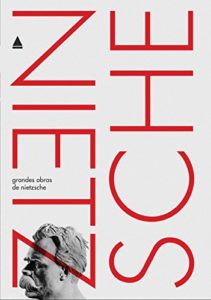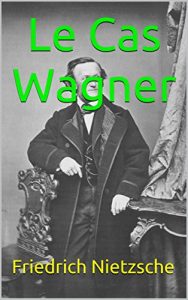Of all Nietzsche’s books, “The Antichrist” comes nearest to conventionality in form. It presents a connected argument with very few interludes, and has a beginning, a middle and an end. Most of his works are in the form of collections of apothegms, and sometimes the subject changes on every second page. This fact constitutes one of the counts in the orthodox indictment of him: it is cited as proof that his capacity for consecutive thought was limited, and that he was thus deficient mentally, and perhaps a downright moron. The argument, it must be obvious, is fundamentally nonsensical. What deceives the professors is the traditional prolixity of philosophers. Because the average philosophical writer, when he essays to expose his ideas, makes such inordinate drafts upon the parts of speech that the dictionary is almost emptied these defective observers jump to the conclusion that his intrinsic notions are of corresponding weight. This is not unseldom quite untrue. What makes philosophy so garrulous is not the profundity of philosophers, but their lack of art; they are like physicians who sought to cure a slight hyperacidity by giving the patient a carload of burned oyster-shells to eat. There is, too, the endless poll-parrotting that goes on: each new philosopher must prove his learning by laboriously rehearsing the ideas of all previous philosophers…. Nietzsche avoided both faults. He always assumed that his readers knew the books, and that it was thus unnecessary to rewrite them. And, having an idea that seemed to him to be novel and original, he stated it in as few words as possible, and then shut down. Sometimes he got it into a hundred words; sometimes it took a thousand; now and then, as in the present case, he developed a series of related ideas into a connected book. But he never wrote a word too many. He never pumped up an idea to make it appear bigger than it actually was. The pedagogues, alas, are not accustomed to that sort of writing in serious fields. They resent it, and sometimes they even try to improve it. There exists, in fact, a huge and solemn tome on Nietzsche by a learned man of America in which all of his brilliancy is painfully translated into the windy phrases of the seminaries. The tome is satisfactorily ponderous, but the meat of the cocoanut is left out: there is actually no discussion of the Nietzschean view of Christianity!… Always Nietzsche daunts the pedants. He employed too few words for them—and he had too many ideas…







![Baixar Der Antichrist (The Antichrist) [German English Bilingual Edition] (German Edition) pdf, epub, eBook](https://br.99ebooks.net/wp-content/uploads/2017/05/512Bn4ipNxmL-188x300.jpg)






